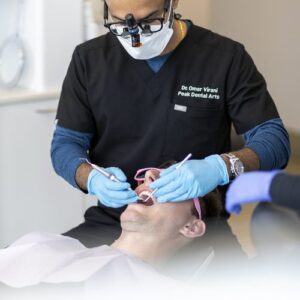Oral surgery is characterized as any operation performed on your teeth, gums, jaws or any other oral or facial structures. Surgery procedures such as dental bone grafts, corrective jaw surgery, gum grafts and teeth extractions are examples of oral surgeries. Below, we’ll discuss some telltale signs that you may need oral surgery.
1. Impacted Teeth That Cause Pain and Swelling
Your wisdom teeth are the last set of adult teeth to emerge. These teeth are located at the back of the mouth along the top and bottom on both sides. In many instances, there is only a small space for these molars to emerge; thus, other teeth are impacted. Due to the small area, wisdom teeth tend to grow where they find the room — which frequently results in growth into the jaw. That can cause severe pain, swelling, discomfort and even abscesses. If your wisdom teeth have started to come in and you end up in this situation, you may need to visit your dental clinic for oral surgery.
2. Pain and Clicking from TMJ Disorder
The temporomandibular joint (TMJ) connects your lower jawbone to your skull and assists with movements like speaking and chewing. TMJ disorder occurs when muscles and ligaments around the jaw joints become inflamed or irritated. This causes jaw pain, headaches, pain in the neck or shoulders, and clicking, popping or grating sounds when you open and close your mouth.
TMJ disorder can occur due to trauma or injury, among other reasons. If you have persistent pain or tenderness in your jaw or cannot open or close your mouth, make an appointment at your dental clinic. With TMJ disorders, patients may need surgical treatments as a last resort if more conservative measures are unsuccessful.
3. Advanced Gum Disease
Advanced gum disease leads to inflammation and damaged bone tissue. Once you’re diagnosed with gum disease, your dentist may assign a stage and a grade to the severity of the disease. Before proceeding with treatment, your dentist will consider how far advanced the gum disease is, your health and the complexity of the treatment required.
For severe gum disease, surgery is the likely option for treatment. Surgery can help regrow damaged bones and tissues, prevent tooth loss, reduce gum gaps and reshape the jawbone.
4. Missing Teeth That Need Replacing
You may have experienced a mouth injury causing you to lose one or more teeth. There are many different methods to replace teeth, and your North Vancouver dentist may recommend oral surgery. If you are in good health and your gums and jaw are healthy, you are likely eligible for oral surgery.
Oral surgery to replace missing teeth is an alternative to bridges or dentures. It replaces missing teeth with dental implants, which are more natural looking. Dental implants are artificial tooth roots made from titanium. They are surgically placed in the jaw and loaded with an artificial tooth called a crown.
5. Loose or Damaged Teeth
Having a loose tooth is uncomfortable. As such, you may need oral surgery to treat it. The same goes for damaged teeth – if your teeth are damaged, contact your dental clinic to discuss if you need oral surgery to correct or treat the damage.
6. Loss of Jawbone Density
Your bones change in structure and appearance as you age. It is a normal, healthy process; however, excessive deterioration can make bones more prone to fractures and breakage. This can occur in the upper or lower jawbone. Loss of jawbone density arises due to tooth extractions, gum diseases, dentures or bridges, facial Injuries, developmental deformities and sinus deficiencies, among other reasons. Once bone density is lost, oral surgery is the only way to reverse the deterioration. Treatment may take the form of bone grafting or sinus lift.
7. A Broken Jaw
If your jaw has been broken in an accident or other trauma and causes pain, swelling or discomfort, speak with a dentist or dental surgeon. They will assess the damage and decide if surgical treatment is the best for you.
8. Corrective or Cosmetic Surgery
Some people are born with oral irregularities that worsen over time, causing them to require corrective or cosmetic oral surgery. Sometimes jaws can be uneven or too prominent, or someone might have a receding chin or a tumour affecting their jaw. In these cases, oral surgery is the best solution.
Your North Vancouver Dental Clinic
Peak Dental Arts offers a range of high-quality dental services, including general dentistry, cosmetic dentistry, preventative dentistry and surgery. If you need an emergency dentist or a primary dental clinic in North Vancouver, contact Peak Dental Arts. We provide state-of-the-art dentistry in a friendly and professional environment, listen carefully to your concerns and involve you in the treatment planning process.
Contact us today or complete our contact form to schedule an appointment to discuss your oral health.


